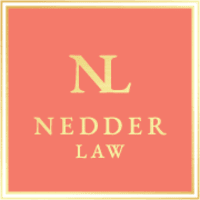Nedder Law Legal Services
Estate Planning for All Ages
Estate planning can take place at any stage of life and is not just for the wealthy! In fact, wealth is built by sound estate plans that pass down assets from one generation to the next. The more prepared you are in this area, the better. There are simple steps you can take to ensure greater control of your future should you become incapacitated. Estate planning ensures that when you pass on, your property goes where you want it to go.
Power of Attorney
A power of attorney is a written document by which you give someone of your choice the legal authority to manage your financial affairs in the event that you become incapacitated or are otherwise unable to handle those affairs yourself.
Without a properly drafted power of attorney, the only way someone (including your spouse) can manage your finances that are in your name alone is to go to court for authority.
Health Care Proxy
A health care proxy is a written document by which you appoint someone of your choosing to make medical or health care decisions when you are incapacitated and unable to make or communicate such decisions. Your health care agent can be the same person you have named in your durable power of attorney document, or you can name a different person, based on a person’s skills and abilities.
A well-drafted health care proxy is the most efficient way to appoint a trusted individual to carry out your treatment preferences without involving the courts.
HIPAA Authorization
The Health Insurance Portability and Accountability Act, also known as HIPAA, was created in 1996 by the US Congress to protect the privacy of your health information. The act prohibits your health care providers from releasing your health care information unless you have provided your health care provider with a HIPAA Release and Authorization. Unless you have provided a signed release/authorization, your health care providers are prohibited from discussing any aspect of your medical information to your spouse, family, friends.
Wills
When you pass away, the Power of Attorney, Health Care Proxy, and HIPAA Authorization no longer apply and your Will comes into play.
Your Will is a legally binding document directing who will receive your property at your death. It also appoints a legal representative to carry out your wishes. However, the will covers only probate property. Many types of property or forms of ownership pass outside of probate, and they include: jointly owned property, property in trust, and property with a named beneficiary (such as IRAs and life insurance).
If you pass away without a will, then the laws of intestacy take over, which basically means that your assets will be distributed according to your bloodline and if you're married, your spouse may not inherit everything.
What happens if you die without a will? Learn more about it. Click here.
Probate and Estate Administration
When a person dies, all their possessions, such as real estate, money, stocks, personal belongings, etc., become part of their estate.
Probate is the official way that an estate gets settled under the supervision of the court.
The purpose of probate is to prevent fraud after someone's death. Imagine everyone stealing the castle after the Queen dies!
It's a way to freeze the estate until a judge determines that:
- the Will is valid
- all the relevant people have been notified
- all the property in the estate has been identified
- the creditors have been paid and that all the taxes have been paid
Estate Administration refers to collecting and managing the assets of the estate, paying debts and expenses, and distributing the remaining assets to heirs or beneficiaries of the estate.
If there is no Will, the court will appoint someone to administer the estate. If there is a Will, then the Will states who should be appointed.
Once appointed, this person, called an executor or Personal Representative, has the legal authority to gather and value the assets within the estate, to pay bills and taxes, and, ultimately, to distribute the assets to the heirs or beneficiaries.
The process does not take too long. More time is involved when there is conflict and when the person appointed does not move as quickly as needed.
Elder Law
Senior clients have different needs and concerns relative to their planning than younger clients. Elder law places an emphasis on those needs and concerns.
Among those concerns, our seniors are often worried about how to protect assets from long-term care costs (nursing home, assisted living and in-home assistance). Long-term care is a tremendous expense and we need to consider a senior client’s assets not only in light of estate tax considerations, but also in light of Medicaid and long term care costs. These considerations need to be addressed by an estate planning attorney who is also an elder law attorney.
MassHealth / Medicaid
Medicaid (in Massachusetts it is called MassHealth) is the country’s largest public payer for long-term care and to apply for Medicaid can be confusing. It is a welfare program intended to pay for care for the poorest among us. If you qualify for Medicaid, it will pay for nursing home care and other costs that Medicare does not cover. Medicaid also pays for long-term care services provided at home.
For most elders, the prospect of long-term care in a nursing home is something to avoid. Elders are often concerned that the cost of long-term care will deplete their estates. The high cost of nursing home care in Massachusetts certainly legitimizes those fears.
In the absence of any other public program covering long-term care, Medicaid has become the default nursing home insurance of the middle class.
In order to be eligible for Medicaid benefits to cover nursing home costs, you must be financially eligible, in addition to clinically qualifying for nursing home care. There are numerous rules and regulations that can be traps for the unwary. There are also numerous myths about how to qualify. Click here to read more about the myths of Medicaid.
Long Term Care Planning
Long term care planning takes into account not only traditional issues of estate planning but also the issues which will confront us as we age, not to mention the complexities of family dynamics. The greatest emphasis is placed on maintaining the highest quality of life. Consideration is given to not only legal issues, but also medical, social, financial, and familial matters.


